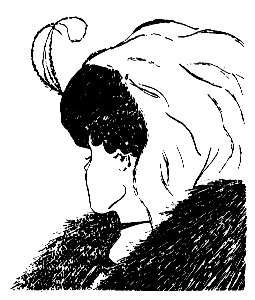“Fighting has always been,
more or less,
a form of blindness.”
to be wise is to see
I'm intrigued by the notion of seeing as a metaphor for learning and for understanding. I'm also concerned about wisdom, how we apply our knowledge, and how we make decisions. So it caught my eye when Canadian blogger Dave Pollard mentioned that the word “wise” originally meant “to see”. The Online Etymology web site reveals
“to see,” hence “to know”
(see vision)
See vision, indeed. See. Vision. Perspective. Viewpoint. Foresight. 20/20 hindsight. Insight. Take a close look. Take a closer look. Seeing is believing. Blind. Blindness. Blind spot.
Do you see what I see? Do I see what you see? How do we compare and communicate what we see?

Have you ever been with other people while looking at one of those optical illusions? Have you ever been the one person who couldn't see what everyone else sees? It's frustrating! It's easy to suspect they're just playing a prank.
Or, have you ever tried to help someone to see “the other image”? That can be frustrating, too. “Well, if you kinda squint your eyes this way and turn your head...now do you see it?”
In a way that experience is the whole point of this web site. It's the point of my other web sites, too. Can I see what you see? Can you see what I see? How do we acknowledge and demonstrate that we see?

It seems to me that our culture often tries to tell us there's only one thing that can be seen. Ever. If we see something else, well, we'd better keep it to ourselves. Our culture tells us, “This is a picture of a vase. It's only a vase. If you think you see something else in this picture, well, you're wrong! Because it's a vase.”
We have 24-hour “news” channels, and magazines and newspapers and radio stations, all to remind us that this is a vase — and only a vase. Vase, vase, vase. Wait! Breaking news! “Some nut claims to see faces in this picture. Har har har, isn't that quaint? Faces! Now back to you, Sue, with the 5-day vase forecast.”
Blindness. Blind spots. Vision. Perspective. Insight.
To see, hence, to know. To be wise is to see.
Supplementary notes
Dave Pollard, What words once meant
Online Etymology Dictionary, “wise”
Stephen Colbert, “Cynicism is a self-imposed blindness”
“Fighting has always been...a form of blindness.” from the novel Blindness, by Jose Saramago.
A wonderful study group that I have participated in for 20 years now began with our teacher producing exactly these two graphics. Over and over again during these two decades, we have tried to be aware of the moment when our perception of the matter we happened to be discussing reached the transitory cusp, the point where an old understanding gave way to the new, not by vanishing but by becoming an alternative interpretation.
a simple matter of perspective
“He was constantly reminded of how startlingly different a place the world was when viewed from a point only three feet to the left.”
That's from The Salmon of Doubt, the book Douglas Adams was writing when he died.
Imagine: A startlingly different place, and only three feet to the left. It seems to me that three steps to the left is an easy journey to see a totally different world. That's worth the trip, don't you think?
(Comments open in a new window or tab.)

 This work is licensed
under a Creative Commons Attribution-NonCommercial-ShareAlike2.5 License
This work is licensed
under a Creative Commons Attribution-NonCommercial-ShareAlike2.5 License
Your comments welcome also.
What do you see?
(Comments open in a new window or tab.)